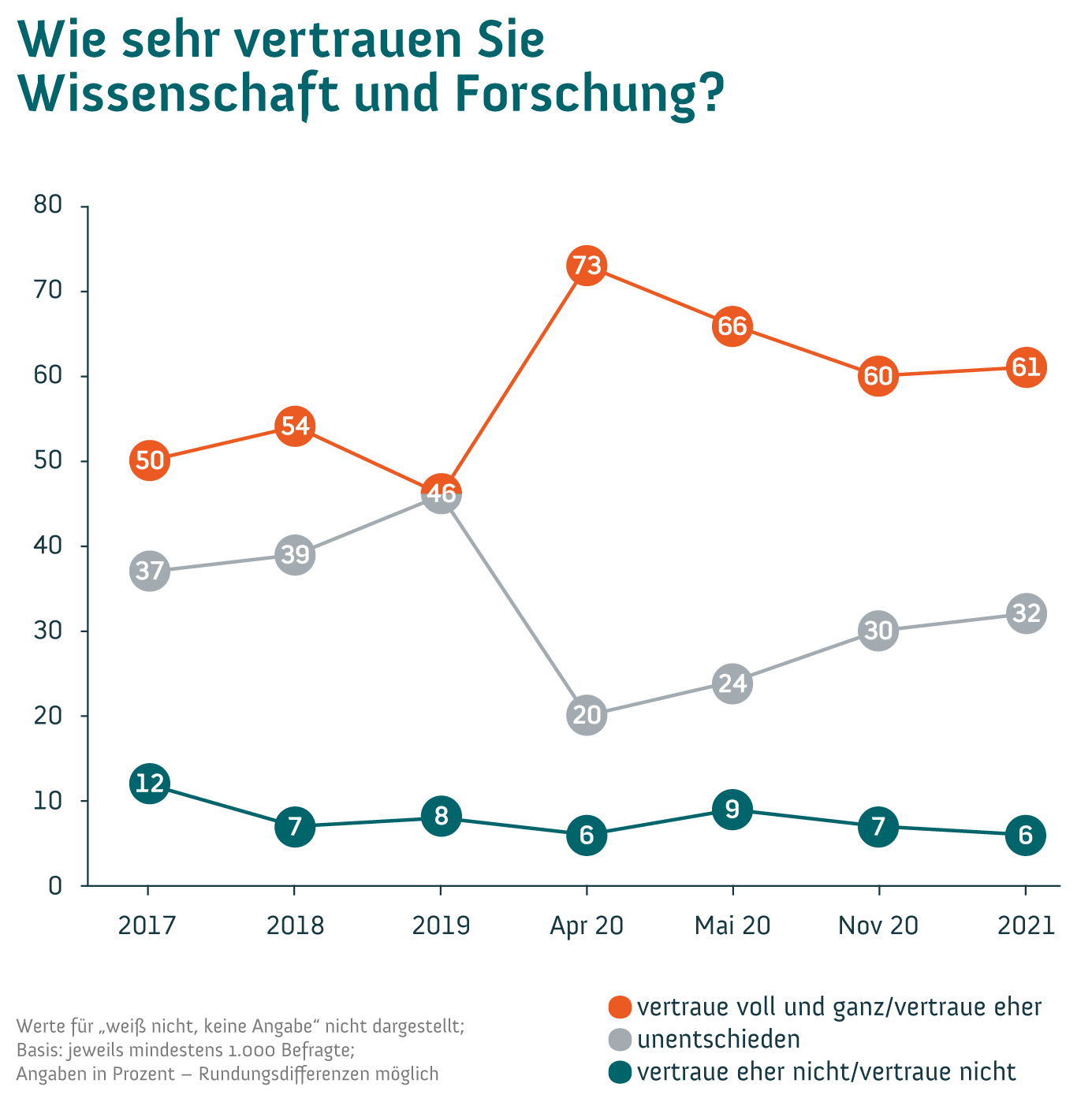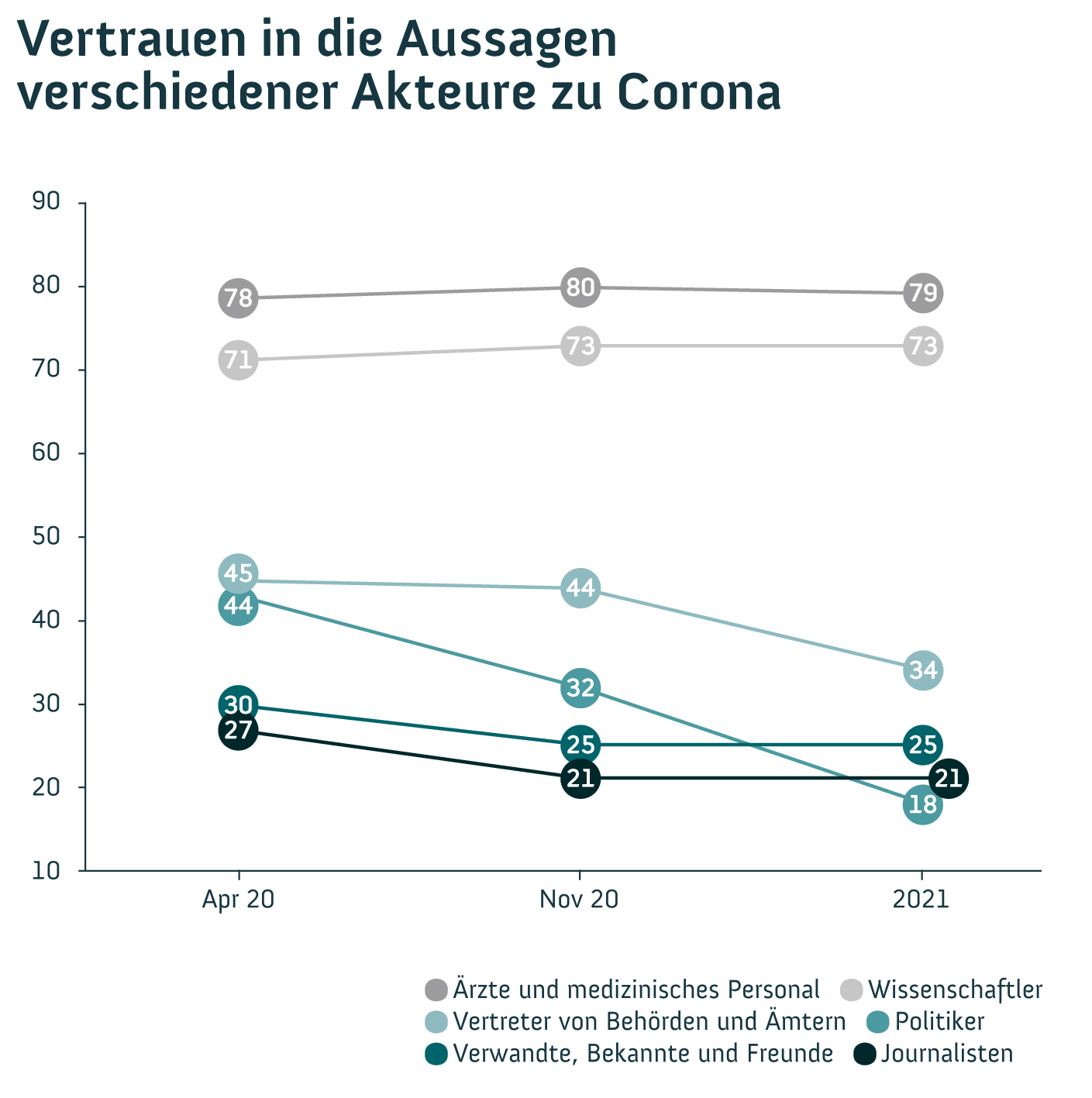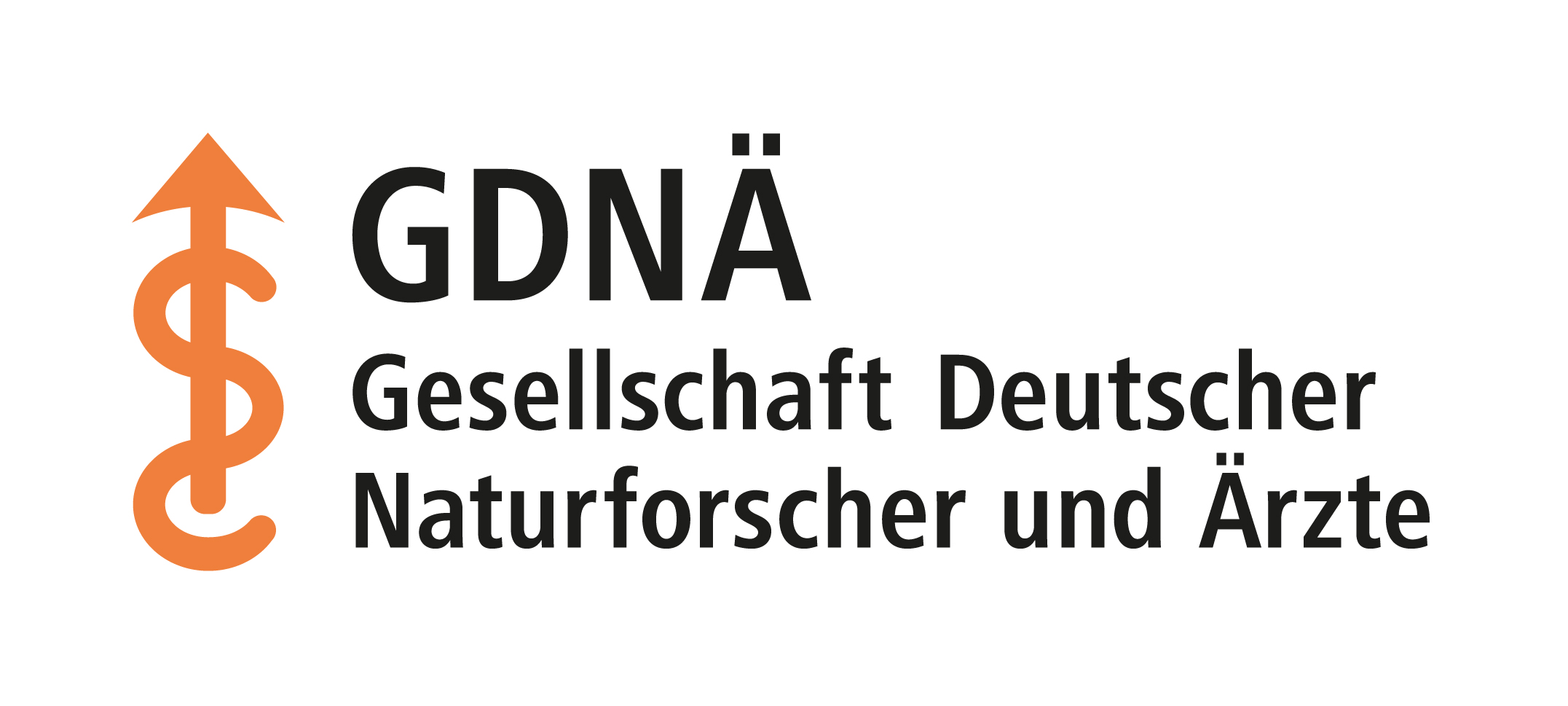High credibility confirmed again
Trust in science and research remains strong, especially in the Corona pandemic. But there are also sceptical voices. This was the result of a representative survey by Wissenschaft im Dialog (WiD), a non-profit organisation in which the GDNÄ is a co-partner.
The majority of people in Germany rely on science and research. In the current opinion poll “Wissenschaftsbarometer 2021”, 61 percent of respondents said they trust science rather or completely. This is similar to the previous survey in November 2020 (60%) and more than before the Corona pandemic began (2019: 46%, 2018: 54%, 2017: 50%).
Only in the Corona Special Surveys in April and May 2020 was the level of agreement higher, at 73 and 66 per cent respectively. 32 percent of respondents are currently undecided. This is the result of population-representative data from the Science Barometer, with which the non-profit organisation Wissenschaft im Dialog (WiD) has been surveying public opinion on science and research in Germany since 2014. Sponsors and supporters of the project are the Robert Bosch Stiftung and the Fraunhofer-Gesellschaft. The GDNÄ has supported the goals and diverse activities of WID for many years as a co-partner.

Germans’ trust in science and research has increased sharply with the Corona pandemic. © WiD
The high level of trust in science and research is also reflected in the desire for scientific policy advice. Thus, more than two thirds of the respondents (69 %) are of the opinion that political decisions should be based on scientific findings. 75 % think that scientists should speak out publicly when political decisions do not take scientific findings into account. An active interference of scientists in politics is desired by 32 percent of the respondents. Half of the respondents think that scientists should recommend certain decisions to politicians in the specific context of the Corona pandemic.
However, it is unclear to many respondents (53 %) how policy advice on Corona works in Germany. “People would like even more information about when and how scientific findings influence policy,” says Markus Weißkopf, Executive Director of Wissenschaft im Dialog.

What doctors and scientists say about Corona is most likely to be believed. © WiD
In the context of the Corona pandemic, trust in the statements of scientists is particularly high: 2021: 73 %, November 2020: 73 %, April 2020: 71 %. Only the trust in statements by doctors and medical staff on Corona is even higher (2021: 79 %, November 2020: 80 %, April 2020: 78 %). The statements made by representatives of authorities and agencies, journalists and politicians are trusted much less in comparison (2021: 34%, 21% and 18%).
Despite the high level of trust in medicine and science, sceptical positions on the Corona pandemic also meet with approval. For example, 39 percent agreed somewhat or strongly with the following statement: “Scientists are not telling us everything they know about the corona virus” (19 % undecided, 40 % somewhat disagree or strongly disagree). Twenty-six percent agree with the statement that the pandemic is being made into a bigger deal than it actually is (12% undecided, 61% disagree or tend to disagree).
“The results show that a minority doubts science – but a minority that has become louder during the pandemic,” says Prof. Dr. Mike S. Schäfer, Professor of Science Communication at the Institute of Communication Science and Media Research at the University of Zurich and member of the Scientific Advisory Board of the Science Barometer.

New survey by „Wissenschaft im Dialog“. © WiD
Weitere Informationen:
